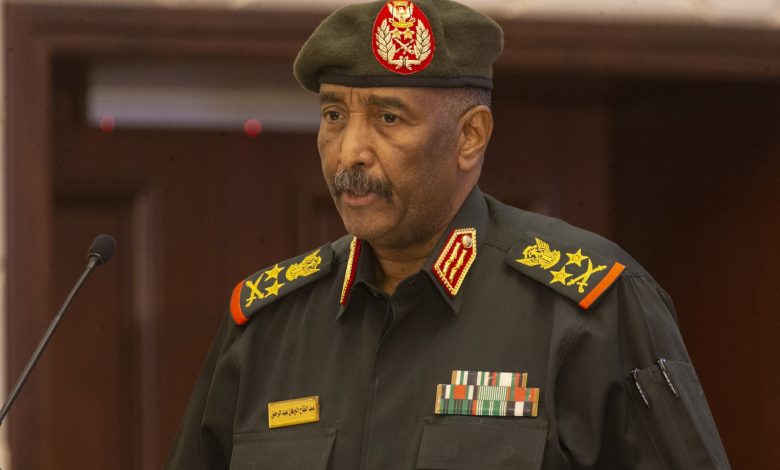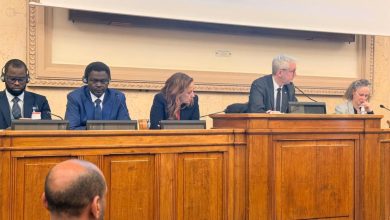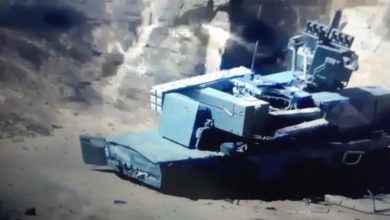Reports
Al-Burhan Relocates His Residence to Atbara and Distributes Ministries Across States

By Al-Nour Ahmed Al-Nour
Khartoum – Sudanese Sovereign Council Chairman and Commander-in-Chief of the Sudanese Army, Abdel Fattah al-Burhan, intends to relocate his residence from Port Sudan, the capital of the Red Sea State in eastern Sudan, to Atbara in the Nile River State in the north within weeks.
Al-Burhan had designated Port Sudan as the temporary administrative capital of the country after leaving the General Command of the Army in central Khartoum in August 2023. He had been besieged there since fighting broke out between the army and the Rapid Support Forces (RSF) in mid-April 2023.
Government sources close to the Sovereign Council told Al Jazeera Net that the council approved the distribution of ministry headquarters to the states of Kassala and Gedaref in eastern Sudan, as well as Dongola, Merowe, and Atbara in the north. Meanwhile, the ministries of Foreign Affairs, Finance, and Economy will remain in Port Sudan.
Center of Gravity
According to these sources, some members of the Sovereign Council will also relocate their residences to different states. Malik Agar, the council’s deputy chairman, will move to Kassala, while member Ibrahim Jaber will move to Gedaref. Other members, including Shams Al-Din Kabbashi, Abdullah Yahya, and Salah Adam Tur Rasas, will remain in Port Sudan, with Yasser Al-Atta staying in Omdurman.
The government sources explained that Port Sudan has become an economic and commercial hub, housing the headquarters of companies, organizations, embassies, and ports. However, there are not enough buildings to accommodate state activities. The relocation of the Sovereign Council’s chairman, some members, and ministry headquarters to various states is expected to activate executive work, improve services in cities, and enhance the public’s perception of government attention and proximity.
The same sources anticipate that Al-Burhan will later move from Atbara to Omdurman following the army’s recent advances in Omdurman, Khartoum North, and Khartoum. The liberation of the capital is expected to be completed before the end of the year. However, environmental risks in central and eastern Khartoum, where the Presidential Palace, Army Command, and most ministries and institutions are located, may require time to address after the war ends, as the area has suffered widespread destruction.
Meanwhile, the Committee for the Development and Rehabilitation of Atbara Airport announced that the construction work at the airport aims to transform it into an international airport that meets the needs of the state and the country for transporting goods and passengers.
Environmental Risks
During his visit to the Nile River State, Al-Burhan inspected the progress of work in rehabilitating and modernizing Atbara Airport. He directed the Civil Aviation Authority to include as many airports as possible in the list of international airports and to double efforts to open the airport this year, considering it a strategic project that serves both domestic and foreign interests.
Tijani Al-Asam, an expert and former secretary-general of the Supreme Council for Environment and Urban Promotion in Khartoum State, believes that central Khartoum is a closed central zone unsuitable for any vital activities without scientific procedures and treatments.
In an interview with Al Jazeera Net, the expert said that central Khartoum, as the capital’s center, has been and still is a theater for extensive and ongoing military operations. The area houses numerous chemical, physical, biological, medical laboratories, natural museums, and zoological sciences.
In his view, these various fields—under normal conditions—require specific needs such as electricity, cooling, ventilation, security, medical safety, and specialized buildings and equipment. However, these facilities have been destroyed, allowing hazardous materials and chemicals to spread and contaminate the area.
He added that the destruction of these centers has polluted the air, soil, and water, resulting in environmental damage. This creates conditions unsuitable for any form of life, and the environmental harm caused by the war will slow the process of restoring the basic components of a natural life unless scientific measures are taken to assess levels of environmental toxicity.
City of Iron and Fire
Atbara is located in the Nile River State in northern Sudan, about 310 kilometers from Khartoum, 10 kilometers from Al-Damer, the state capital, 611 kilometers from Port Sudan, and 474 kilometers south of Wadi Halfa on the Egyptian border.
Situated on the northern bank of the Atbara River and the eastern bank of the Nile, Atbara is one of Sudan’s oldest and most historically significant cities. It is known as the “City of Iron and Fire” because it hosts the headquarters of Sudan’s railway network.
The British once chose Atbara as a military base for their forces after recapturing the nearby towns of Abu Hamed and Berber in 1898. Its strategic location between the Nile and Atbara Rivers made it an ideal military site. The city has a rich history linked to Sudan’s railway system and labor movement.



